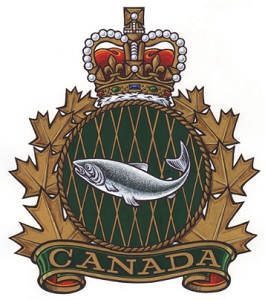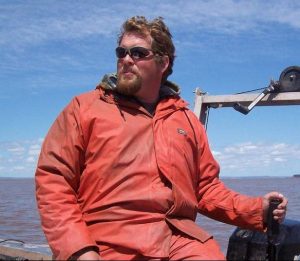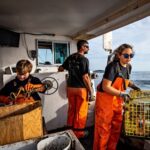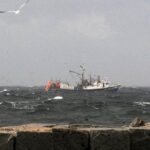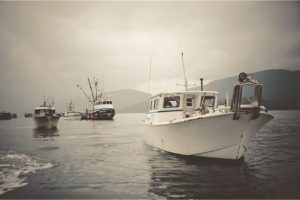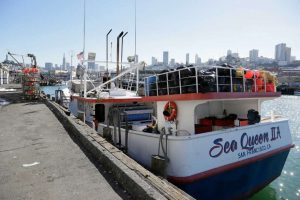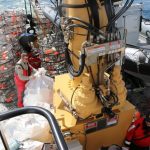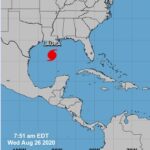Tag Archives: Fisheries Act
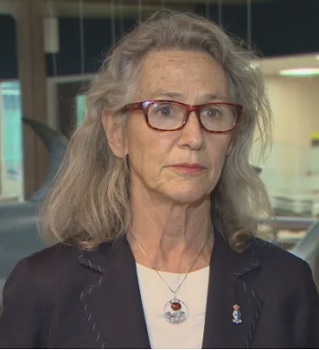
Canada proposes 62 fish stocks for sustainability protection
The Department of Fisheries and Oceans has proposed adding 62 stocks to a regulatory list that binds the minister to rebuild them if they become depleted. In April the first batch of 30 was added. On Oct. 19 the department released a second batch of 62 stocks for public consultation. Comments close Dec. 19. Most stocks in the second batch are considered healthy, but candidates also include three stocks in trouble: cod and herring off southern Nova Scotia and yellowtail flounder in the Gulf of St Lawrence. Speaking to an Oceana conference on restoring fish populations in Ottawa last week Fisheries Minister Joyce Murray pledged to work toward that goal. >click to read< 10:07
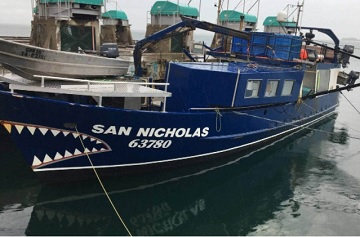
Fisherman forfeits boat after entering guilty pleas
A fishing company and its director will forfeit a fishing boat after entering guilty pleas in court on Tuesday. A lawyer acting for Cando Fishing Ltd. and its director Campbell McManaway entered guilty pleas to Fisheries Act and Fisheries Regulations charges in the Invercargill District Court on Tuesday. The company admitted 11 charges related to exceedingly long set nets, selling fish contrary to law, and record keeping. McManaway pleaded guilty to five charges related to failing to provide reports and omitting information from reports. >click to read< 13:48

Snow crab fishermen plead guilty for failing to accurately report catch weight
A number of snow crab fishers pleaded guilty in a P.E.I. court Thursday to violations of the Fisheries Act following a Department of Fisheries and Oceans investigation of landings at a Souris wharf in recent years. A total of 13 people are charged. The three fishermen in court in Georgetown Thursday pleaded guilty to charges of failing to accurately report the weight of their catches of snow crab in accordance with the Fisheries Act. Also pleading guilty was a woman who worked on the dock monitoring crab catches. Court heard the fishers unloaded the catches in Souris between June of 2019 and May of 2020 at Souris wharf. >click to read< 19:12
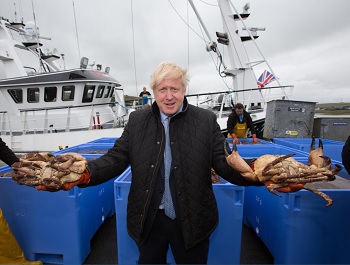
Brexit News: Britons Rage At Boris Over Fishing Move: ‘Not Done What He Was Elected To Do’
Fury has erupted after the F/V Africa and the F/V Zeeland, two of the largest fishing vessels in the world, were seen just 15 miles off the Cornwall coast on several days throughout last week. Jayne Adye, director of the pro-Brexit campaign group Get Britain Out, said: “Both are registered in the Netherlands, and for some obscure reason, have been given licences to fish in UK waters. They are both well over 100 meters long and use nets which can be the size of six football pitches.” >click to read< 07:31
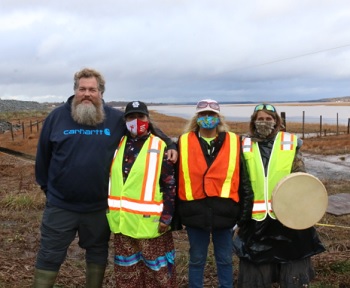
Highway 101 shut down as Avon River causeway protestors urge action to allow free fish passage
On Nov. 16, Howe was among the dozens of people who gathered to hold a ‘respectful, reduced traffic flow’ on Highway 101. The majority of traffic was detoured but some trickled through, starting and stopping in six-minute intervals to reflect the short time frame that fish have to pass through the gated structure. It was an inconvenience to many motorists – but according to fisherman Darren Porter, it was a necessary move. “At the end of the day, how else do you get media here?” asked Porter, while surrounded by water defenders. Porter has been drawing attention to the limited fish passage in Windsor for several years. >click to read< 07:38
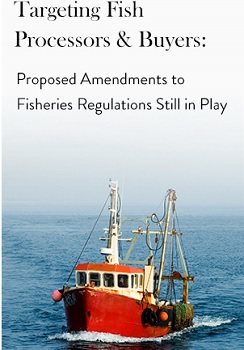
Proposed Fisheries Regulation Amendments Target Fish Processors & Buyers
The Fall 2019 re-election of the Liberal government means the proposed amendments to federal fisheries regulations remain a concern for industry participants.,, However, the government has, to date, not implemented the amendments. The proposed amendments target arrangements that transfer license rights and privileges from license holders to third parties. In the Statement, the Minister notes the perceived narrowness of the definition of “Controlling Agreement”,, McInnes Cooper has prepared this document for information only,, >click to read< 12:27
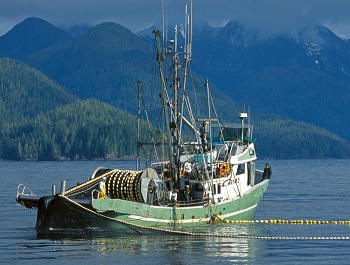
Canada Has a New Fisheries Act. How Does It Stack Up?
Canada has the longest coastline in the world, yet it has long been a lax outlier in fisheries management. But with an overhaul of the federal Fisheries Act now complete, the sense among advocates and fisheries experts is that the tide is about to turn. The passage of Bill C-68 on June 21 means that for the first time since the Fisheries Act was enacted in 1868, Fisheries and Oceans Canada is required to manage fish stocks sustainably and put rebuilding plans in place for those that are depleted. >click to read< 18:36

A stronger, modernized Fisheries Act becomes law
This afternoon, Bill C-68 received Royal Assent by the Governor General and has officially become law. This is a victory for the environment, independent fishers, and all Canadians because today, the important amendments to this Act, put forward by our government are being enshrined in law. Informed by extensive consultations with the public, industry, environmental groups and Indigenous peoples, this modernized Fisheries Act reflects the views of Canadians and will ensure our fisheries continue to grow Canada’s economy and support the livelihood of coastal communities.
A modernized Fisheries Act will benefit all Canadians by: >click to read<18:46
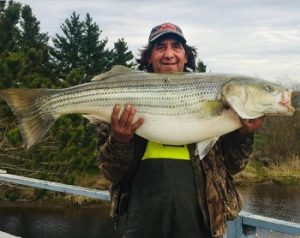
Fisherman pulls monster bass from Annapolis River after tidal station shutdown
According to Fisheries and Oceans Canada, striped bass used to spawn in the Saint John, Annapolis and Shubenacadie river systems on the Bay of Fundy. The causeway built across the Annapolis River in 1960 and the Annapolis Royal Tidal Generating Station that opened in 1984 have been widely blamed for driving the fish from that river. Meanwhile the Saint John population dropped off after the Mactaquac Dam was built in 1968. But after decades of protests,,, >click to read<09:50
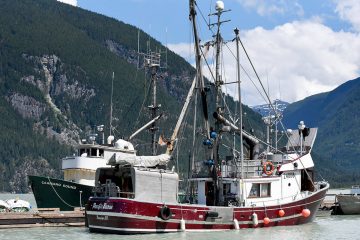
North Coast leaders celebrate report’s focus on independent fishers
North coast leaders are calling the sweeping recommendations of a Parliamentary committee a win for independent fishers. The all-party Standing Committee on Fisheries and Oceans released its study on the state of the West Coast fisheries May 7, recommending numerous changes to the Fisheries Act that aim is to lower financial barriers for those wanting to enter the profession, and limiting the number of licences held by any single group.,,, Bill C-68, adopted in June of last year, paved the way for an overhaul of the Fisheries Act, whereby the ministry considers not only ecology in its decisions, but the social and economic impacts on the communities dependant on the fishery. >click to read<19:39
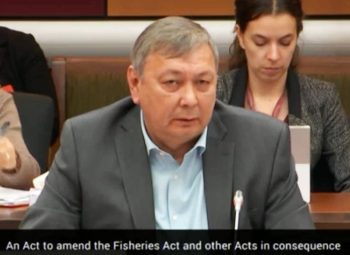
Bill C-60: Reviewing the Fisheries Act – B.C. North Coast residents to Ottawa: ‘We can’t make a living fishing’
Lax Kw’alaams Band Mayor John Helin called for more consultation as he painted a grim picture,,,“In my community we have a fleet of 70-80 gillnetters that can’t make a living,,, Prince Rupert resident, Chelsey Ellis,,, Ellis grew up on the East Coast, where she’s seen the benefits of the owner-operator policy for fish harvesters. In her statement, she said this is not the same in British Columbia, where there has been a steady increase of licenses and quota being transferred from fishermen and away from coastal communities.>click to read<15:44
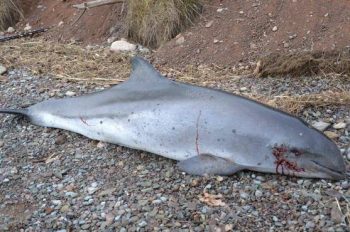
Dolphin, porpoise found dead near Minas Basin turbine site
A dolphin and a porpoise have been found dead along the shore of the Minas Passage since the installation of OpenHydro’s instream tidal turbine late last month. The dolphin was found along the shore near Highland Village at the end of July and on Aug. 4 the porpoise was found dead near Bass River.,, Meanwhile Fisheries and Oceans Canada has declared that the 1,000-tonne turbine in the Minas Passage is now in violation of its special dispensation under the Fisheries Act because monitoring equipment meant to evaluate whether it kills marine animals isn’t operational. The turbine has been spinning but not generating power on the floor of the Minas Passage. >click to read<09:57

FISH-NL asks federal Auditor General to investigate sentinel cod fisheries
“Money from the sale of cod caught in the sentinel or test fisheries goes in the pockets of the FFAW-Unifor even though the program is supposedly fully financed directly by Fisheries and Oceans,” says Ryan Cleary, President of FISH-NL. In a letter Thursday to Auditor General Michael Ferguson, Cleary said there doesn’t appear to be any formal audit or reporting process in place to calculate the amount of money raised by the sale of cod caught through the sentinel program, or to determine how the money is spent. Further, even though money from the sale of cod is used to subsidize the sentinel fisheries, the program falls outside Section 10 of the federal Fisheries Act, which seems to be a clear violation of the legislation. >click to read<12:45
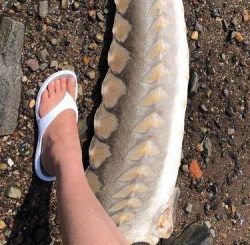
Another dead sturgeon found as review of turbines threat remains in planning process
Another dead sturgeon has been found downstream of the Annapolis Tidal Turbine. Meanwhile a promised review of whether the 20 megawatt turbine kills fish at population levels by the Canadian Science Advisory Secretariat remains in the planning process. “The terms of reference for the review have been drafted,” said Debbie Buott-Matheson, spokeswoman for Fisheries and Oceans Canada, in a written response. “We have not yet set a date for a CSAS peer review meeting, but it is considered a priority going forward.” That review was announced in January after a series of stories in the Chronicle Herald detailing how the turbine, which opened in a causeway crossing the Annapolis River in 1982, was never granted an exemption under the Fisheries Act to kill fish. >click to read<18:58

New regulations to protect marine mammals in effect for all coasts in Canada
New regulations to protect whales, dolphins and porpoises are in effect for all coasts in Canada as the Department of Fisheries and Oceans works to ensure more officers and patrol vessels are available to enforce the rules.,,, The regulations include the requirement to report to the Fisheries Department any incident of a vessel accidentally striking a mammal or when it becomes entangled in fishing gear, Cottrell said. Under the Fisheries Act, anyone who disturbs marine mammals could be fined up to $100,000 or a maximum of $500,000 for a criminal offence, Cottrell said. >click to read<14:38
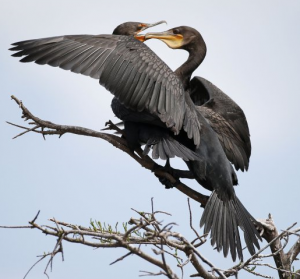
Cormorant, Fisheries Act concerns need to be addressed
Cormorant management and Canada’s Fisheries Act are just two of the issues that members of the Committee of Advisors to the Great Lakes Fishery Commission have raised and want action taken on by the Canada and US governments,,, “One of the concerns our committee has raised is with Canada’s Fisheries Act proposals-in particular with proposed marine protected areas,” Mr. Purvis told the Recorder.,, Another area of concern, said Mr. Purvis, is for needed cormorant management control. “I know in areas like the Les Cheneaux Islands in the US there are no fish left due to cormorants. They decimated the perch fishery for instance. And the US government had at one time allowed for a cull of cormorants, then they took this away. Now the perch fishery in that area is gone.“ >click to read<08:15

Fisheries Act – Prince Rupert council calls for parity with East Coast fisheries
With changes coming to the Fisheries Act, Prince Rupert city council wants to make sure independent B.C. fishers are included. “All we’re asking for is parity with the East Coast,” Councillor Barry Cunningham said. “The East Coast has more of a thriving fishery, even though at times it’s in disarray. It’s definitely more beneficial to the communities and the individuals on the East Coast, whereas, in our fishery on the West Coast, corporations are slowly gobbling it up.” Council moved to bring a resolution to the Union of BC Municipalities, stating owner-operator licences should be applied to the West Coast. It asks that amendments to the Fisheries Act,,, >click to read<09:27
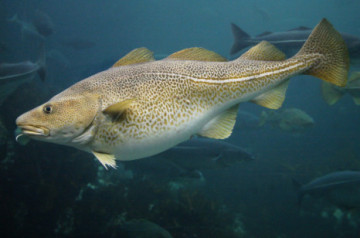
Fisheries Act must include legal duty to rebuild stocks: Oceana Canada
For the first time since the Fisheries Act was created in 1868, there are provisions within it that focus on the rebuilding of fish stocks. But as they’re currently worded, they fall short of what international experience has shown is required to actually help a stock rebuild. Simply, they must mandate that the federal government respond, not just consider responding. That was the word from Josh Laughren, executive director of Oceana Canada, at the House fisheries committee earlier today. He said the language contained in Bill C-68 will also have to go further if it’s going to fulfil Canada’s international agreements and ensure this country’s laws are commensurate with other nations. >click to read<16:06
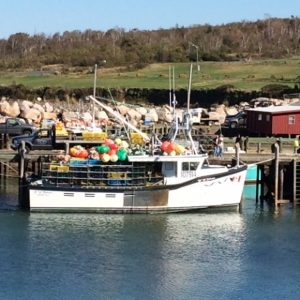
Disabled fisherman fights ‘arbitrary’ 5-year limit on substitute fishermen
A disabled Nova Scotia fisherman says he will continue challenging a federal rule that will prevent him from hiring someone to catch lobster under his licence. Dana Robinson lives in Granville Ferry, N.S., and has had an owner-operator licence to fish in the Bay of Fundy, Area 35, since 2007. But due to a medical condition, he’s no longer able to stand for more than a few hours a day and can’t operate his boat himself. Fisheries Act regulations permit someone who has a medical issue to find a substitute to fish under their licence, but only for five years. >click to read< 16:40

Harvey Jarvis: Fishery proclamations much ado about nothing
For those who missed it, the week beginning Feb. 5th gave us a great example of how the media is used to convince us what a what a great job is being done. On day one we had a letter in The Telegram from the FFAW telling Dominic Leblanc what he should do (“Fishery corporations kick messaging into high gear,” Feb. 5), and the next day we had Dominic Leblanc standing at a podium telling everyone what he has done or is about to do. Then about 30 seconds later we had a press release from the FFAW patting itself on the back for another great win. I am referring, of course, to the news of how Dominic Leblanc is reversing some of Stephen Harper’s reforms plus making some changes to the Fisheries Act. >click to read< 08:31
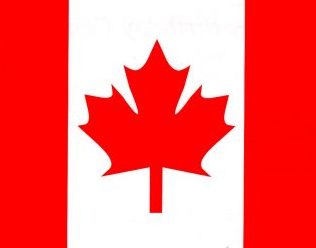
OPINION: Fisheries Act changes bring Canada into the 21st century
Despite warnings in your Feb. 1 editorial that changes to the Fisheries Act were “pure madness,” the opposite in fact is true. For the most part, the upgrades are common sense, enable existing policy frameworks and bring Canada into the era of modern fisheries management. Bill C-68 tabled last week is the culmination of not just the past 18 months of consultation, but more than two decades of pressure to modernize the Fisheries Act. It is 150 years old this year – only the British North America Act is more ancient – and it’s high time that Canada updated the contents. >click to read< 09:58
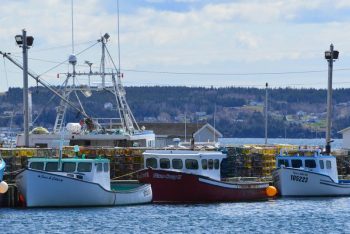
Changes to act mean more fishing wealth headed back to Pictou County
A local fisherman is cheering proposed reforms to the federal Fisheries Act that he says will bring more industry profits back into Pictou County. The changes mean that fishermen may only hold one licence for each species and must make their own catches, taking wealth away from big fishing corporations in favour of local independent owner-operators. That’s according to Ronnie Heighton, a River John fisherman and president of the Northumberland Fishermen’s Association. >click to read< 10:40

Minister announces changes to federal fisheries act
Federal Fisheries and Oceans Minister Dominic LeBlanc announced today $284.2 million to support the restoration of protections to fish and fish habitats taken away by the former Conservative government in 2012, and to incorporating new modern safeguards in the industry. It was part of amendments to the Fisheries Act that LeBlanc outlined at a news conference in Vancouver. “To preserve, protect and help restore our environment we need a Fisheries Act that Canadians can trust,” LeBlanc stated. >click to read< 15:05 
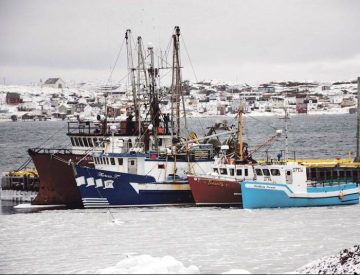
Letter: Fishery corporations kick messaging into high gear
As is evidenced from two recent articles in The Telegram (the letter, Jan. 23 “We need to enhance Atlantic Canada’s fisheries” and the Jan. 26 editorial “Fisheries madness”), the corporate-owned processing and offshore sector is in full fear-mongering and misrepresentation mode. Faced with a minister of Fisheries and Oceans who is willing to speak the truth about the challenges to the inshore fishery, the corporations that have aggressively endeavoured to shape the economics of this fishery for the past 20 years are now being told to play by the rules and they are enraged at the prospect.>click to read< 08:51
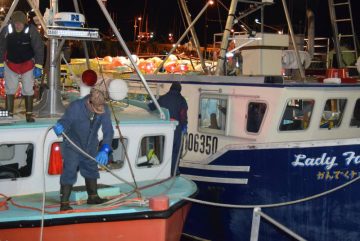
Editorial: Fisheries madness
The federal government seems hell-bent on proceeding with ill-advised amendments to the Fisheries Act that pose particular threat to Atlantic Canadian inshore fishermen and processors. The importance of the fishery cannot be overstated — directly responsible for 80,000 jobs and $6.6 billion in exports — while the indirect economic impact is much greater. Yet Ottawa is hinting at major changes — especially with licence allocation — that could turn the industry upside down. >click here to read< 10:49 
Judge orders DFO monitoring reports of rival fishing vessels to be disclosed to the court
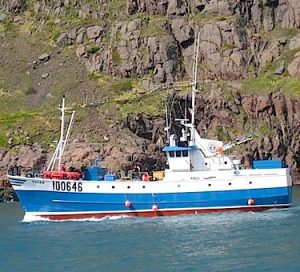 The Nunavut fishing company Masiliit Corp. has won a small victory in trying to prove it was following industry standards when fishing for turbot in Davis Strait in October 2012. Masiliit Corp., a member of the Arctic Fishery Alliance, and its ship master, Captain George Hudson, have been charged under the Fisheries Act for fishing outside of Canadian waters. But in what has become a long and drawn out legal affair, their lawyers have argued that because of Davis Strait’s “narrow fishing channel, unpredictable and strong currents and an irregular international fishing boundary,” it is not unusual, “for fishing nets to drift after they have been set,” Nunavut Justice Sue Cooper summarized in her written judgement. click here to read the story 09:59
The Nunavut fishing company Masiliit Corp. has won a small victory in trying to prove it was following industry standards when fishing for turbot in Davis Strait in October 2012. Masiliit Corp., a member of the Arctic Fishery Alliance, and its ship master, Captain George Hudson, have been charged under the Fisheries Act for fishing outside of Canadian waters. But in what has become a long and drawn out legal affair, their lawyers have argued that because of Davis Strait’s “narrow fishing channel, unpredictable and strong currents and an irregular international fishing boundary,” it is not unusual, “for fishing nets to drift after they have been set,” Nunavut Justice Sue Cooper summarized in her written judgement. click here to read the story 09:59






